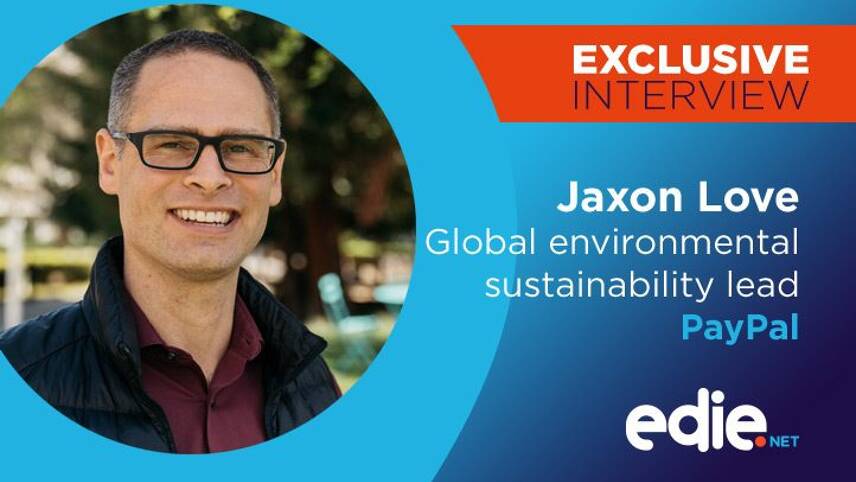Register for free and continue reading
Join our growing army of changemakers and get unlimited access to our premium content

PayPal ran its first Missions Sustainability Challenge last year
You’d be hard-pressed to find a member of PayPal staff who doesn’t see financial and social sustainability as part of their ‘business-as-usual’ routine. PayPal describes itself as a “purpose-led, driven company whose beliefs are reflected in the way [it] does business every day”, with its president and chief executive Dan Schulman having described that purpose as “creating a world where everyone has access to the tools, resources and opportunities they need to improve their financial health and participate in the global economy. “
To that end, the multinational helped to enable $9.6bn (£7.6bn) of charitable donations through its service last year, with a further $2.25m (£1.77m) pledged to disaster relief and recovery. It has also been running and employee engagement programme around charitable work, called PayPal Give, for several years, through which staff donated 29,500 volunteering hours during 2018.
Similarly, you’d be forgiven for thinking that the environmental side of sustainability not as embedded in the DNA of the company due to its digital business model; it sells no physical products and therefore has a comparatively small resource, water and carbon footprint.
But according to PayPal’s global lead for environmental sustainability Jaxon Love, the firm’s 20,000-strong global workforce is now just as engaged with key environmental challenges as they are with championing financial security and strong communities. To that end, PayPal launched what he described as its “first attempt at a global, employee-focused engagement programme around the environment” last year.
Called the PayPal Missions Sustainability Challenge and delivered digitally as part of a partnership with staff engagement platform Benevity, the scheme is estimated to collectively reduce the environmental footprint of staff across 60 PayPal sites by 892,000 pounds of carbon; 40,000 pounds of waste and 332,000 gallons of water during 2019.
The key to driving these achievements, Love told edie, is a model which “takes the existing drive and passion of employees and gives them the opportunity to maximise their impact in their own ways”.
Using the platform, staff are able to digitally calculate and track the environmental impact of their behaviours relating to water, waste, transport and energy – either on a one-off basis or over time – and to see how their contributions fit with those made by their colleagues. This data can then be shared with the global business, after which point prizes are given to individuals who have made the largest contributions.
“The impact of daily activities may seem small, but when they are quantified over a long period of time and across many staff globally, they add up to a substantial impact,” Love explained.
“The platform is, really, about empowering our employees to adopt new behaviours and re-enforcing their existing positive behaviours in a gamified way.”
Campaign model
As with last years’ pilot, this year’s PayPal Missions Sustainability Challenge, launched last month, is due to run for a four-week period. During that timeframe, staff are predicted to avoid the use of 1.4 million kWh of energy, 34,000 trees worth of paper and pulp products and 3.6 million plastic bags, with the platform tracking habits both within and outside of the workplace.
After an initial trial of such a behaviour change scheme, many organisations – including the string of universities to have used the JUMP platform here in the UK – decide to make them a permanent fixture in order to keep staff motivated.
PayPal’s Love, however, sees more value in taking a “campaign-based” approach, as he believes the company’s staff are typically engaged enough with environmental stewardship to take positive action “under their own initiative” on an ongoing basis.
“We’re discussing our options around whether we run the campaign on a regular cadence and also looking at opportunities to develop campaigns that are more locally focused so that leaders at specific sites can choose to run schemes focused on a particular area of impact,” he said.
Previous staff-led campaigns which have been tailored to suit the location, Love explained, have included tree-planting and beach-cleaning drives in Chennai, India, and “eco-fairs” in Dublin, Ireland, where PayPal vendors offering “green” products and services are given pop-up displays at the company’s office.
During periods when the PayPal Missions Sustainability Challenge is not operating, PayPal staff will have a series of other “Missions” to select from under the Benevity platform, including those covering workplace giving, volunteering and community investment programs.
It is partly this “holistic” approach to social and environmental sustainability, Love claims, which gives employee engagement the upper hand over purely removing undesirable habits through automation and choice-editing.
“We really feel that employee engagement is a powerful tool; we’ve seen the success of engaging employees around our social impact and believe we have a huge opportunity to leverage the creativity and passion of our employees to drive impact across the business and beyond our four walls,” he concluded.
Sarah George


Please login or Register to leave a comment.